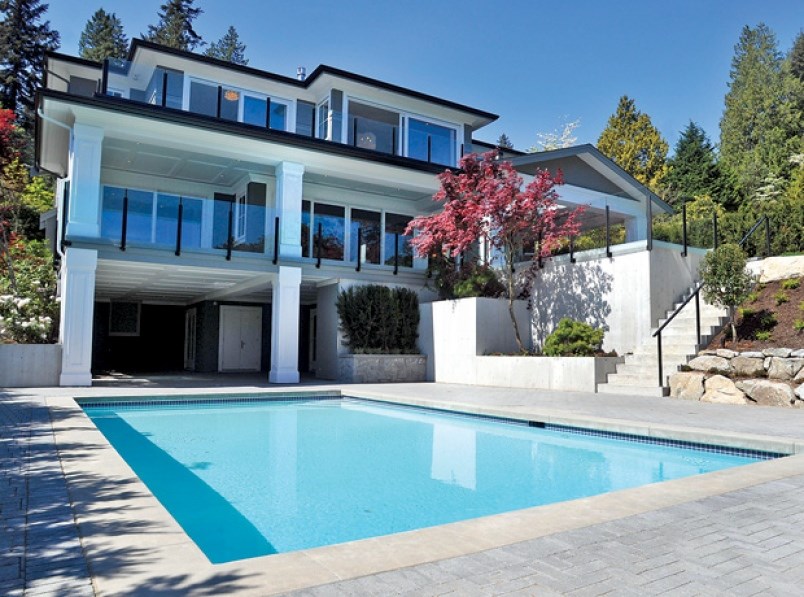Budget measures put in place to cool runaway prices and speculation in the real estate market, as well as increasing taxes on the wealthiest homeowners, are receiving mixed reviews in West Vancouver, where a larger than average number of owners stand to be impacted.
Some praised the measures as a good first step to curbing speculation by wealthy foreign buyers, which has driven property prices beyond the reach of local people while leaving too many houses as vacant parking spots for global money.
But others voiced concern people in affluent West Vancouver will mostly be on the “paying” end of a classic tax-and-spend scenario.
Measures announced Tuesday include an immediate increase in the foreign buyers’ tax from 15 to 20 per cent, expected to bring in an extra $40 million annually by next year, plus a hike on property transfer tax from three to five per cent on properties worth over $3 million, expected to bring in $81 million annually. Homes worth over $3 million will also have an increase in provincial school taxes that are paid with annual property taxes. That’s expected to bring in an extra $200 million by the next fiscal year.
A new speculation tax will also be levied on secondary homes left vacant in cases where homeowners don’t pay provincial income taxes. That move is meant to “penalize people who have been parking their capital in our housing market simply to speculate,” said Finance Minister Carole James, discussing the budget with reporters. That’s predicted to bring in $200 million to provincial coffers by the next fiscal year.
Those who rent their homes on a long-term basis will be exempt from the speculation tax.
The province will also take steps to gather more information about who really owns property, in order to close tax loopholes.
West Vancouver Realtor Brent Eilers of Remax Masters Realty said that’s a move that’s likely to have widespread support.
“Most Canadians would agree more disclosure is better than less disclosure if it gets to the bottom of who’s paying their fair share of taxes,” he said.
Together, the measures are likely to have a bigger impact on the West Vancouver real estate market than many other areas of the province, particularly since foreign buyers have a significant influence in the local real estate market, said Eilers.
Eilers said while the moves will mean short-term pain in the local market, overall they will be stabilizing. “It will help keep a lid on a runaway situation that nobody really wins with,” he said. “There’s a lot more people getting hurt than end up winning the lottery.”
Andy Yan, director of the City Program at Simon Fraser University, also had praise for the new taxes and controls aimed at the high end of the real estate market.
“I’m pleasantly surprised by this,” he said, adding while the impacts have yet to be determined “the NDP has at least stood up” to the housing situation. “It’s certainly going to be a market signal that the government has its eyes on this.”
“Should you decide to park your money in Metro Vancouver they’re extending the parkade and increasing the parking fees. The era of free parking has perhaps ended.”
West Vancouver Mayor Michael Smith said he supports the goal of ending speculation in the real estate market, but isn’t sure the province is going about it the right way. To really make an impact, those who invest in housing just to flip it should have their profits taxed as business income, said Smith.
“I believe very strongly that houses are for housing families. They aren’t for investment vehicles,” he said.
Homes sitting vacant in West Vancouver are a problem, said Smith, which is why the municipality is asking for the ability to set a higher property tax rate for those.
But Smith said he “vehemently disagreed” with an increase to school taxes levied against property values, adding that would hit many homes in West Vancouver. “The average house in West Vancouver is valued at over $3 million,” he said. West Vancouver residents already pay the highest school taxes and TransLink taxes in the province, said Smith. “They’re adding literally thousands of dollars of tax on homes in West Vancouver.”
Smith said the NDP has a resentment of anyone who “has worked hard, pays taxes, lives in a nice house and drives a nice car . . . they target unfairly people who have success.”
West Vancouver-Capilano MLA Ralph Sultan described the budget as the NDP in “tax and spend mode, big time.”
“I think this is more of a revenue grab than any effort to really solve our housing crisis,” he said.
“Deep down inside they needed more revenue and thought ‘We’ll whack all those high-priced homeowners in West Vancouver and Point Grey.’ It’s certainly a big hit for people on the North Shore.”
Sultan described the budget overall as one of “income redistribution. It’s taking from those who are well off or better off and giving it to the people who are least well off,” he said. “One thing I’ve noticed is people don’t like paying taxes even if it’s for a good cause.”



